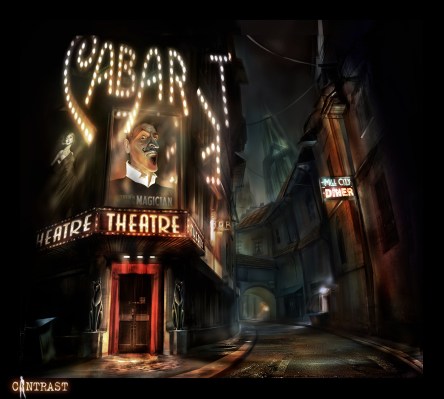With the Xbox One and PlayStation 4 mere days away from launch, gamers, mommy bloggers and middle school bus drivers across the nation want to know: what’s hot and what’s not?
We’ve studied the trends, played (some of) the games, and reached out to industry experts. Here’s the definitive investment guide on gaming’s big trends: buy, sell or hold?
First-Person Shooters
Recommendation: BUY
Console-gaming in the United States has become synonymous with the first-person shooter (FPS). Though old gems like Doom (1993), Quake (1996) and Goldeneye 007 (1997) began the revolution, it wasn’t until Halo: Combat Evolved (2001) that mainstream gamers officially stopped stomping turtles and committed to pulverizing alpha-male humanoid soldiers. What happened?
“Pointing your crosshair at something, pulling the trigger, and seeing your target drop to the ground is one of the simplest, fastest and most visceral things you can do in a video game,” said Ben Cousins, General Manager of DeNA’s Scattered Entertainment game development studio. Besides Angry Birds, few games have the quick, mechanical thrill of an FPS. Exhaustive world-building titles like Minecraft or complex character-building games like Skyrim offer hours of satisfying gameplay, but less immediate accessibility.
More importantly, however, game publishers want guaranteed sales. “Publishers want to put their money on surefire hits like Call of Duty so they can go back to their shareholders and tell them about their record-breaking sales figures,” said Marty Hess, avid gamer and blogger at Pixel Rated. Call of Duty prints cash as fast as players fire rounds, with 10 million copies sold year after year. Hollywood execs would take a bullet to the kneecap for that kind of reliable performance.
“It’s why we develop gaming mice, keyboards, headsets and software specifically designed to give gamers an edge within the [FPS] genre,” said Min-Liang Tan, CEO and Creative Director at Razer, a PC gaming hardware company. “I often compare FPS games to movies. Studies have shown that action and adventure movies, on average, gross more than any other type of movie, and it’s not even close.”
The better each FPS does, the more publishers are willing to invest on the next installment. Like it or not, the first-person shooter is here to say.
iOS Games
Recommendation: BUY
Mobile gaming has exploded, particularly on iOS. Google is slowly catching up, but overall revenue and platform stability have caused developers to flock to the iPhone first, and Android second. Still, some aren’t happy about the trend toward mobile gaming.
“I actually think one of the biggest risks today in our gaming industry are these inexpensive games that are, candidly, disposable from a consumer standpoint,” said Nintendo of America President Reggie Fils-Aime back in 2011. It is, of course, in Nintendo’s best interest that consumers think along these lines. With the Wii U floundering, Nintendo needs all the sales it can get on its still-popular 3DS portable. But Reggie has a point. For every polished hit (Angry Birds), stylish surprise (Ridiculous Fishing) or pricey console port (World of Goo) the App Store has 10 rubbish apps that set gaming back 15 years.
“Mobile gaming is exploding on [Apple’s] platform and they are doing nothing to support it,” said Hess. “Sure, sometimes Infinity Blade is on stage at a press conference, but where’s the (functioning) controller support? Where’s an Apple TV that lets you play Angry Birds? Why is there no in-house development effort? Why does Game Center look and work like garbage? Where’s the co-marketing money? Why is the App Store curation so terrible? The list goes on.”
Share these critiques with today’s elementary schoolyard gamer, however, and you’ll be lucky to get a blank stare in between levels of Candy Crush Saga. Old-fashioned console gamers may pine for the good old days, but Apple has about a million lollipop-flavored trump cards, and nothing but cash on the horizon.
Big Living Room Boxes
Recommendation: SELL
Give Microsoft credit for trying. With the Xbox One, the flailing software giant will attempt to put your whole living room entertainment center in a single, 13- by 10-inch box. The new console offers movies, TV, games, web browsing and music, all in one place. But with the far sleeker Apple TV, Google’s Chromecast, digital downloads and the proliferation of tablets, do consumers really want a big, black box with game cases strewn around the room?
“The living room is no place for a pure, isolated games machine anymore,” said Ludwig Kietzmann, editor-in-chief at Joystiq. “There’s a tablet on the coffee table, there are family members who want to steal the TV to stream some Downton Abbey, and far less tolerance for fussing about with menus and discs. A good console turns invisible when summoning content becomes effortless and reliable.”
“I think the trend is away from dedicated game devices,” said Trevor Stricker, an indie developer at Disco Pixel. “It’s a much more compelling value proposition for somebody to buy a cable box that happens to have Android on it.”
Expect the Xbox One and PS4 to close out the big black box era like doomed cable executives sipping a nine hundred dollar bottle of wine. For the next few years, they’ll make gobs of money. But quietly, they know their format is on its way out.
Mid-Tier Developers
Recommendation: SELL

The late 90s and early 2000s were a golden age for mid-tier game development studios. Like the moneyball Oakland A’s, the strategy was simple: consistently churn out “base hits” (instead of home runs), and create a successful operation over time. Gamers enjoyed the guarantee of a dozen “supplemental titles” to fill out the gaps between the AAA staples (ex: Grand Theft Auto, Call of Duty, Madden), while hands-on developers could choose to be a corporate cog at Electronic Arts or a key creative at Small Studio XYZ. Everybody won.
Today, the middle has fallen out. Mid-tier developers like Factor 5 (notable: the Rogue Squadron series) and Ensemble Studios (notable: the Age of Empires series) have shut down following inconsistent performance. Most famously, perhaps, is Team Bondi, the Australian firm that spent seven years developing the hugely popular L.A. Noire, only to close its doors months later amidst reports of poor working conditions.
Meanwhile, the big boys have stuck to the hits like an old rock band on the brink of irrelevance, adding various colons, Roman numerals and color names to distinguish copycat sequels (Assassin’s Creed IV: Black Flag; Call of Duty: Black Ops II). It’s reliable content, but it often comes at the cost of creativity.
Indie Developers
Recommendation: HOLD

Contrast, an indie game set for release on Windows, PS3, PS4 and Xbox 360.
Here to save the industry, indie development has grown on just about every platform. With small teams of 1-10 members, these agile developers can create risky, experimental titles at an affordable burn rate.
“It’s impossible to ignore the current rise of the indie developers, who are very much ignoring [the FPS] and trying out many different genres and coming up with some very unique mechanics,” said Sean Aune, editor-in-chief of TechnoBuffalo.
Multi-decade gamer Jon Negroni points to Contrast, a puzzle-platformer that will mix 2D and 3D perspectives. It’s this sort of creative experimentation that counterbalances games like Titanfall, a future Electronic Arts FPS as unoriginal as it is technically impressive.
Still, it’s hard to recommend buying stock in indie developers just yet. They’re easy to love and their creativity is admirable, but business remains brutal. Like starting a company, many more indie games will fail than become hits. Big living room boxes might be on their way out and first-person shooters an industry guarantee, but for indie games, your best bet might just be to wait and see.
The PS4 launches on November 15th. The Xbox One launches on the 22nd. A new Call of Duty will launch every year from now until the apocalypse, at which point Activision plans to take “one year off to assess remaining demand among the survivors.”
This article was written for TIME by Ben Taylor of FindTheBest.

